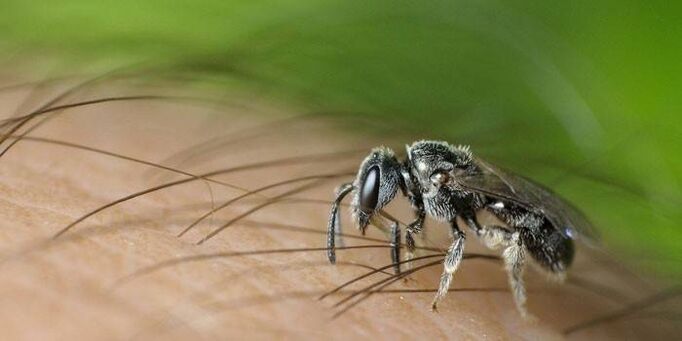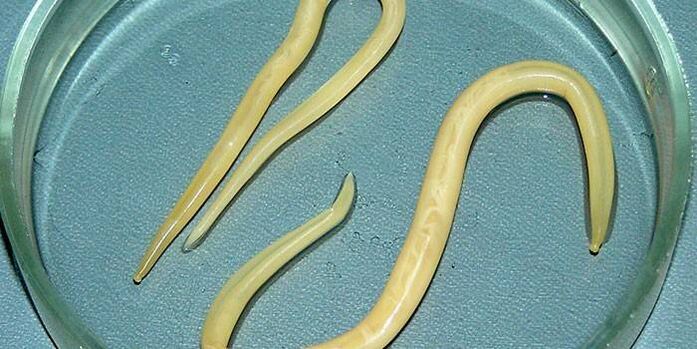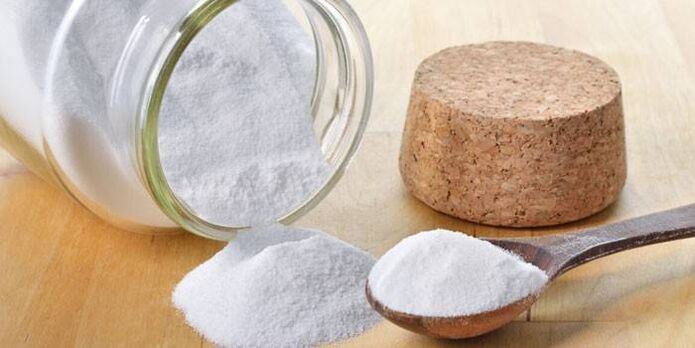There are several signs that a person has parasites in their gut, and there are various treatments available. Malfunctions of internal organ systems or changes in the appearance of stool have been seen as warning signs to begin checking for the presence of parasites. Many people don't even realize they have worms in their bodies. They are more common in children than in adults. This is because babies can put toys and dirty hands in their mouths.
What are intestinal parasites
Worms in the stomach can reside on the walls of organs in humans and animals. They cause a disease called helminthiasis. The gut is considered one of the favorite habitats for worms of different species. In this case, parasites can be found in all sectors (small, large and rectal).
Parasites in the gut are harmful organisms. Protozoa and worms (worms) can live on the intestinal wall. To prevent the emergence of worms, it is necessary to know how to avoid infection. There are only four main sources of parasite eggs entering the human body:
- insect bites;
- contact (handshake, pinworm transfer);
- through the soil;
- Use raw or uncooked meat, fresh fish dishes.

what parasites live in the human gut
For a long time, a person may not suspect that they have a parasite, and symptoms may resemble certain diseases. Worms are often found in the digestive organs. Parasites live in the human gut
- roundworms. They live on the lining of the small intestine, causing digestive disturbances and weakening the body's immune system.
- hookworm and intestinal hookworm. These parasites in the stomach can cause hookworms.
- Ugrit. Causes strongyloidiasis. The liver, gallbladder and digestive system are affected.
- wide ribbon. This parasite causes dilobite disease. Worms live on the wall of the small intestine.
- bull tapeworm. Worms cause teniarinhoz.
- Schistosoma. These parasites in the rectum are flukes. They can cause colitis, which can lead to appendicitis or hardening of the bowel wall.
- pork tapeworm. This worm causes tapeworm disease. Violation of digestive work, leading to neurological disorders. Its larvae affect the gut, visual organs, brain, and skin.
- Vlassolaf. Causes whipworm disease.
- Trichinella. These worms in the gut contribute to the development of trichinosis in humans. In severe cases of disease, death is possible.
Protozoan microorganisms or major protozoa that can live on the human gut wall:
- Lambia. They can cause digestive disorders.
- Histology (dysentery) amoeba. This microorganism causes amebiasis. The main symptom of the disease is diarrhea.
- Honey blastocyst. It will only harm the body if the immune system is weakened, causing diarrhea and vomiting.

Symptoms of intestinal parasites
If a person has intestinal parasites, this will definitely manifest itself. At the same time, indirect signs of the presence of worms are often confused with other symptoms of various diseases. You cannot self-medicate, but you will need to seek help from your doctor. Usually, the main symptoms of intestinal parasites are:
- gas. The worms that sit on the wall of the small intestine can trigger an inflammatory process with swelling and gas.
- constipate. The most popular sign of the presence of worms on the intestinal wall.
- diarrhea. Causes the parasite to produce hormones that cause frequent liquid bowel movements.
- weight change. People with worms may experience persistent hunger or decreased appetite.
- allergic reaction. Worms in the host gut secrete substances that cause the release of high doses of protective cells called eosinophils. All of these can lead to allergies.
- joint and muscle pain. Parasites are able to move around the body to find a comfortable habitat. They are able to fixate on the muscle, causing acute pain.
- fatigue. People with worms often feel tired, apathetic, sleep deprived, and have difficulty concentrating on work.
- molar. This symptom manifests itself during sleep in children and is called bruxism.
diagnosis
It can be difficult to identify worms at first because the symptoms of a worm invasion are similar to other diseases. Occasionally, worms have been discovered accidentally during surgery to treat other ailments. Typically, the diagnosis of intestinal parasites includes the following informative methods:
- Serological tests. Identify worm antigens and antibodies. The study was conducted only in the late stages of infection.
- Fecal histological analysis. Microscopic ultra-precise inspection for the presence of parasites.
- perianal scraping. Helps detect pinworms.
- blood scan. The procedure effectively detects the presence of parasites and fungi.

How to get rid of parasites
A parasitologist should treat a person for worms. More than 10 drugs of modern pharmacology have anthelmintic activity. You can't assign them yourself because. They have some activity against different types of worms. To confirm the diagnosis, a series of laboratory tests are necessary. Based on the results obtained, the doctor will develop an effective treatment plan.
Worms can appear and multiply rapidly in the human body, so it is imperative to clear the intestinal parasites as quickly as possible. To defeat and bring out the worms, you need to eat more vegetables and fruits. For a while, it's worth giving up meat and fish. You can diversify your diet with spinach, green beans, apples, and grapes. Experts recommend drinking plenty of water. Therefore, the removal of worms will be faster. Useful for humans and yogurt, which includes high levels of Lactobacillus.
Intestinal Parasite Drugs
The modern market is flooded with various synthetic drugs that can effectively cleanse the gut from parasites. Any remedy must be prescribed by a doctor. To choose the right treatment, you need to pass a stool test. Depending on the type of worm, the patient may be prescribed deworming medication for intestinal parasites.
With a properly designed course of treatment, the parasite treatment effect averages 95%. In this case, reinfection cases are not excluded. After the worms are cleared from the gut during the recovery period, doctors can prescribe medication to adjust the microbiome, thereby boosting the immune system. For these purposes, enzymatic and bacterial agents, intestinal adsorbents, herbal adaptogens and immune stimulants are often used.
folk remedies
The fight against the worm is staged. If the patient's intestinal parasites are cleared, the general condition of the body usually worsens while taking the drug. You can get rid of worms at home using temporary methods or herbal remedies. Traditional medicine healers recommend using foods with strong (burning) flavors to raise body temperature:
- horseradish;
- mustard;
- carnation;
- chili;
- ginger;
- garlic;
- onion.
Effective folk remedies for intestinal parasites also include:
- flaxseed meal;
- Decoction based on pomegranate peel (2 tablespoons need to be poured with boiling water);
- castor oil;
- Wormwood decoction enema (3 grams of grass is poured into boiling water, then filtered);
- onion skin decoction;
- Lemon and garlic tincture;
- peeled pumpkin seeds;
- carrot juice (preferably freshly squeezed);
- Tansy decoction (to prepare the product, you need dried flowers and boiling water);
- Eat a handful of raw rice for breakfast.
Clean your gut from parasites with sparkling water
The use of sodium bicarbonate (soda water) is thought to be effective in eliminating problems associated with internal parasites. This product helps remove worm larvae and adults from the gut, as well as 80% of toxins and harmful products that enter the digestive tract. Worms have poor perception of alkaline environments and they become uncomfortable so they leave their habitat. Usually, cleaning the gut from parasites with soda water takes several stages:
- First, perform a water enema to remove stool;
- 25 grams of sparkling water must then be diluted with a cup of warm filtered or boiled water;
- The solution should be administered with an enema;
- It takes about 30 minutes to withstand the soda ingredients in the body before defecation;
- Then you need to put another water enema to eliminate residual alkali and reduce the negative impact of soda water on the body;
- The procedure should be carried out daily until the worms are completely eliminated;
- The soda treatment is considered complete if there are no worms in the stool for two days.

Prevent intestinal parasites
As with many other diseases, the appearance of worms in the human body is easier to prevent than to treat. In general, preventing intestinal parasites involves maintaining personal hygiene and the cleanliness of living areas. In order not to experience discomfort from worms, you must follow basic rules that help protect yourself from parasites:
- do not drink raw water;
- Hands should always be treated with an antiseptic or washed with soap;
- Only clean vegetables, fruits, herbs are allowed;
- Swimming is not allowed in reservoirs prohibited by health and epidemic prevention stations;
- Wet and dry cleaning of the premises should be carried out on a daily basis;
- Wash hands thoroughly after contact with animals.
- Children's toys and other items should be cleaned after they are on the street;
- Do not eat raw fish or meat.

















